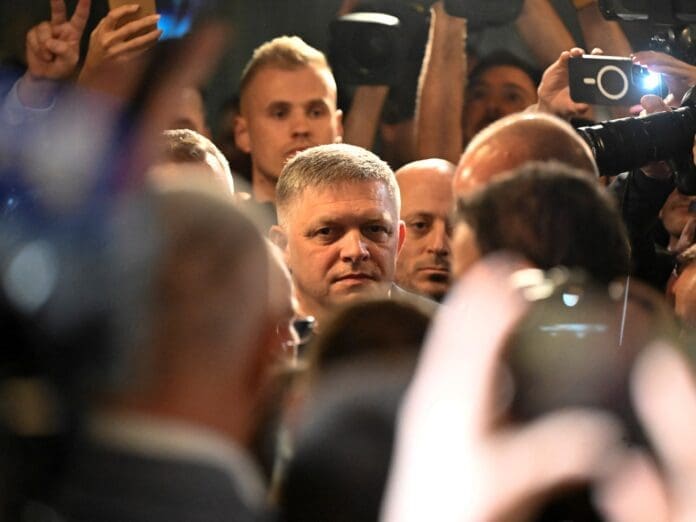As Slovak Prime Minister Robert Fico fought for his life in critical condition on Thursday, a political battle erupted over the motives of a 71-year-old former security guard who shot him. Fico’s deputy and Slovakia’s environment minister, Tomas Taraba, initially accused the centre-left political opposition of having “blood on its hands.” Meanwhile, parliamentarians from Fico’s right-wing coalition held a news conference.
The assassination attempt has exposed deep divisions in Slovak society, with Fico being a key figure in exacerbating these divides. Fico, who draws much of his support from miners and farmers, was attacked in a small mining town. The suspect, an elderly amateur poet and government critic, fired five shots at close range, injuring the premier in the arm and stomach.
Interior Minister Matus Estok expressed concern that Slovakia was on the brink of civil war due to heightened political rhetoric on social media. Investigations suggest a clear political motive behind the shooting. Slovakian President Zuzana Caputova called for an end to hateful rhetoric, urging for unity.
Fico, a dominant figure in Slovak politics who has been prime minister for a significant portion of the past 24 years, faced backlash in 2018 after widespread protests against his government’s perceived ties to corruption following the murder of investigative journalist Jan Kuciak. He returned to power in a controversial manner, dismantling anti-corruption measures and cracking down on critical media.
Fico’s comeback aligns him with a broader wave of euroscepticism in Eastern Europe, similar to leaders in Hungary and Poland. The region’s integration into the EU has faced challenges, leading to resentment and insecurity. Fico successfully tapped into Slovak nationalism during his return to power, campaigning against military aid to Ukraine and defying Western liberal elites.
The situation in Slovakia has caused concern among journalists, with accusations of media smearing and polarization. Some see Russian propagandists seizing the opportunity to undermine European cohesion. Despite the challenges, efforts are being made to bridge divides and promote unity in Slovak society.
